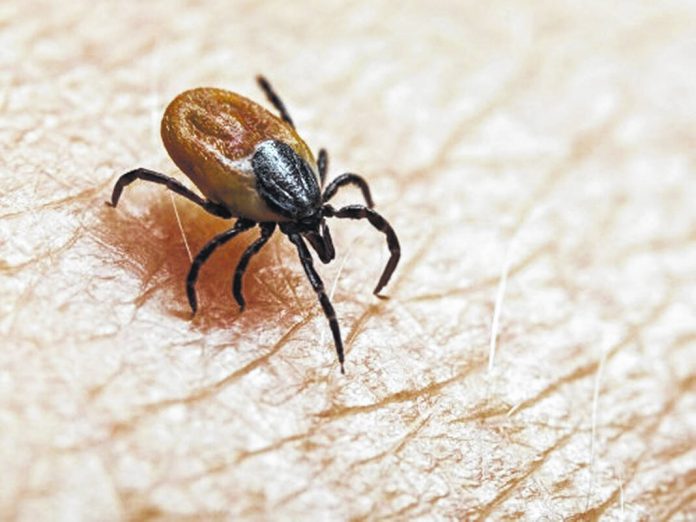Indiana health officials are urging Hoosiers to protect themselves from tick bites during and after spending time outdoors to protect themselves from tick-borne diseases.
Lyme disease is the most common tick-borne disease in Indiana, but Hoosiers are also at risk for other tick-borne diseases, including ehrlichiosis and spotted fever group rickettsiosis — a group of diseases that includes Rocky Mountain Spotted Fever. The risk for Lyme disease is highest in northwest Indiana and the risk for ehrlichiosis is highest in southern Indiana, but disease-carrying ticks have been found throughout the state, according to public health advisory message from the state health department.
Hoosiers should take precautions to prevent tick bites from early spring to late fall, when ticks are most active.
Experts recommend the following precautions to prevent tick bites:
- Know ticks are likely to be present close to the ground in grassy, brushy or wooded areas;
- Treat boots, clothing and outdoor gear with 0.5% permethrin;
- Use EPA-registered insect repellents with active ingredients such as DEET, picaridin, IR3535, oil of lemon eucalyptus (OLE), para-menthane-diol (PMD) or 2-undecanone;
- Treat pets for ticks in consultation with a veterinarian.
Once indoors, people should thoroughly check for ticks on clothing, gear, pets and skin. Tumbling clothes in the dryer on high heat for 30 minutes will kill ticks, and showering can help remove any unattached ticks. Ticks should be removed by using tweezers to grasp the tick close to the skin and then pulling outward with steady and even pressure. After the tick is removed, the area should be washed thoroughly. Ticks should never be crushed with the fingernails, state officials say.
Anyone who becomes ill after finding an attached tick should see a healthcare provider immediately and alert the provider to the exposure. Most tick-borne diseases can be treated with antibiotics, and prompt diagnosis can help prevent complications, state officials say.
For more information visit http://www.in.gov/isdh/20491.htm.





